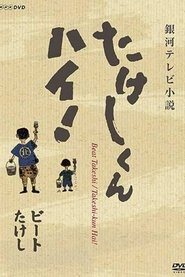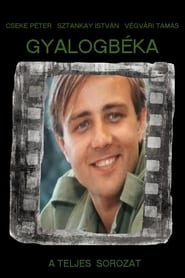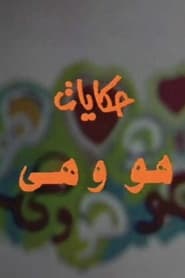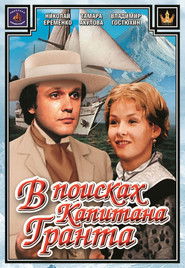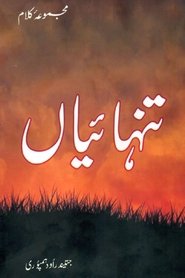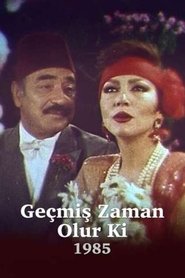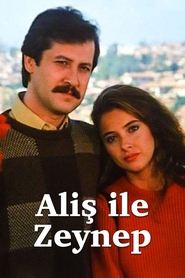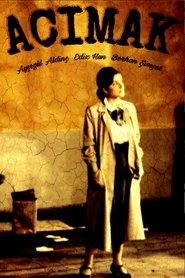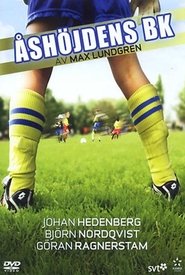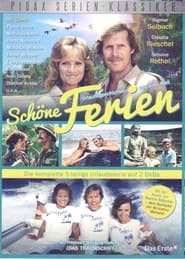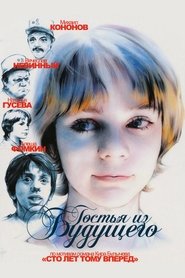New Family TV Series on Tub Tv - Page 406
-
Takeshi-kun, Hai!
1985
Takeshi-kun, Hai!
1985
star 6Set in slums of Tokyo, the daily life of the child Takeshi Kitano and his family is depicted with a comedy touch, the drama revolves around the Takeshi Kitano who is kind but mischievous. -
Magical Emi, the Magic Star
1985
star 6Kazuki Mai, an elementary schoolgirl, wanted to be a magician but her skills weren't good enough for her to join her grandparents' Magiccarat troupe. One day she sees a light enter a strange heart-shaped mirror. The light is actually a mirror fairy named Topo, who takes over her favourite stuffed toy, a flying squirrel and gives her a bracelet with the 4 card suits. The bracelet can turn into a bubble wand which transforms Mai into the 18 year old magician Magical Emi, who uses her magic to help people and participate in her grandparents' shows. -
Frog Footman
1985
Frog Footman
1985
A funny story about Hungarian boys and girls and their adventures in the summer camp. -
He and She Stories
1985
He and She Stories
1985
star 7A drama consisting of several separate episodes, each episode discusses a different issue of men and women and their relationship with each other. -
Mysterious Island
1985
Mysterious Island
1985
star 1A group of children are trying to solve various mysteries during the summer. -
Armação Ilimitada
1985
-
Zahn um Zahn
1985
Zahn um Zahn
1985
A man who has just become unemployed kills his closest relatives before he judges himself. Commissioner Schimanski determined. -
In Search of Captain Grant
1985
star 7.7Lord and Lady Glenarvan found a bottle in the ocean. This bottle contained a letter from Captain Grant that he and two of his sailors had survived a disaster at sea and need help. Unfortunately, the letter was damaged by water, and the latitude is known (37 degrees), but not the longitude. The Glenarvans decide to find Captain Grant. -
Saturday Night's Main Event
1985
star 8.4A professional wrestling television program produced by the World Wrestling Federation banner on NBC airing in place of Saturday Night Live. The series was made up entirely of star vs. star bouts in a time when weekly programming consisted primarily of established stars dominating enhancement talent. -
Unknown Soldier
1985
-
Tanhaiyaan
1985
Tanhaiyaan
1985
star 10Tanhaiyaan is a 1985 Pakistani drama serial which is now considered a cult classic. The drama serial was directed by the legendary Shahzad Khalil and was written by the famous drama writer Haseena Moin. Tanhaiyan featured an ensemble star cast of veterans such as Shehnaz Sheikh, Marina Khan, Badar Khalil, Azra Sherwani, Asif Raza Mir, Behroze Sabzwari, Qazi Wajid, Jamshed Ansari, Yasmeen Ismail, Durdana Butt, Mohammad Yousaf, Sultana Zafar, Subhani Ba Younas and Imtiaz Ali. It is the story of two sisters who lose their parents and go to live with their aunt. One of their efforts to buy back their parents' house leads them to realise what makes a house a home. It has re-run several times on PTV and other TV channels, owing to its popularity. -
Tales From Fat Tulip's Garden
1985
Tales from Fat Tulip's Garden was a children's TV program in the mid-1980s, starring Tony Robinson. It was produced by Debbie Gates for Central Independent Television and aired on British TV network ITV from 1985 to 1987, in a 4:00pm timeslot, with each episode lasting about 10 minutes. Robinson would tell children's stories directly to camera in an English garden setting, and would put on all the voices himself. The show was written by Debbie Gates and Robinson and carried by Robinson's unique and engaging storytelling style, which was semi-improvised. Robinson hoped to provoke the imagination and produce a sense of immediacy in contrast to the shortcomings he saw in children's television at the time. The majority of the programme was filmed in the house and garden of Little Monkhams, a property in Woodford in the Redbridge Borough of London. Further scenes were filmed in the part of Epping Forest facing the house -
Geçmiş Zaman Olur Ki
1985
Geçmiş Zaman Olur Ki
1985
-
Aliş ile Zeynep
1985
-
Acımak
1985
-
Åshöjdens BK
1985
Åshöjdens BK
1985
When the legendary football player Bagarn Olsson moves to small town Åshöjden, the boys learn how to kick some balls, and to rock n' roll with The Nautilus. -
Schöne Ferien
1985
Schöne Ferien
1985
-
Miotsukushi
1985
Miotsukushi
1985
star 10In the early Showa era, the town of Choshi in Chiba Prefecture was divided by the conflicts between the worlds of "land" and "sea". Born to Kyubei Bando, the owner of a long-established soy sauce brewery, and his mistress Rui, Kaworu was taken in by her father and raised as a prim and proper lady. As she grew up, she fell in love with Sokichi, the eldest son of an established fisherman; alas, their two families were in conflict. This is a story of pure love between two people that grew beyond the boundaries of the old customs that they were brought up with. It is a drama that depicts their turbulent journey of love and the bonds of the people from an old and established family working tirelessly to protect their naturally brewed soy sauce business through the ups and downs. -
Guest from the Future
1985
star 8.1Alice Seleznyova, a girl from the future, finds herself 1984. Following her are the space pirates Krys and Joker Y, with most nasty pirate's intentions. Coming to her help is an ordinary boy, Kolya, and his friends from 6th grade. Based on Kir Bulychyov's 1077 novel "One Hundred Years Ahead." -
La Famille Bargeot
1985
La Famille Bargeot
1985
 Netflix
Netflix
 Amazon Prime Video
Amazon Prime Video
 Apple iTunes
Apple iTunes
 Apple TV Plus
Apple TV Plus
 Disney Plus
Disney Plus
 Google Play Movies
Google Play Movies
 Paramount Plus
Paramount Plus
 Hulu
Hulu
 HBO Max
HBO Max
 YouTube
YouTube
 fuboTV
fuboTV
 Peacock
Peacock
 Peacock Premium
Peacock Premium
 Amazon Video
Amazon Video
 The Roku Channel
The Roku Channel
 AMC+
AMC+
 Kocowa
Kocowa
 Hoopla
Hoopla
 The CW
The CW
 Vudu
Vudu
 Starz
Starz
 Showtime
Showtime
 PBS
PBS
 Pantaflix
Pantaflix
 FXNow
FXNow
 Tubi TV
Tubi TV
 Kanopy
Kanopy
 Comedy Central
Comedy Central
 Crunchyroll
Crunchyroll
 Microsoft Store
Microsoft Store
 Redbox
Redbox
 Sun Nxt
Sun Nxt
 ABC
ABC
 DIRECTV
DIRECTV
 Crackle
Crackle
 Fandor
Fandor
 Plex
Plex
